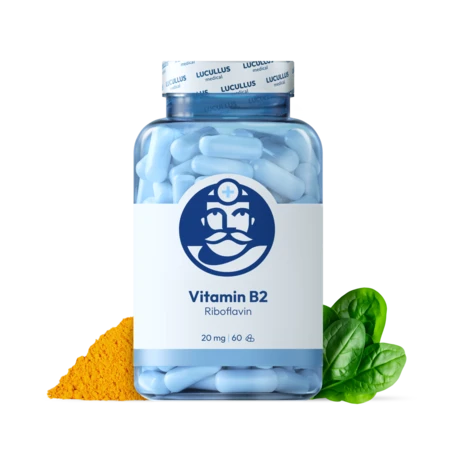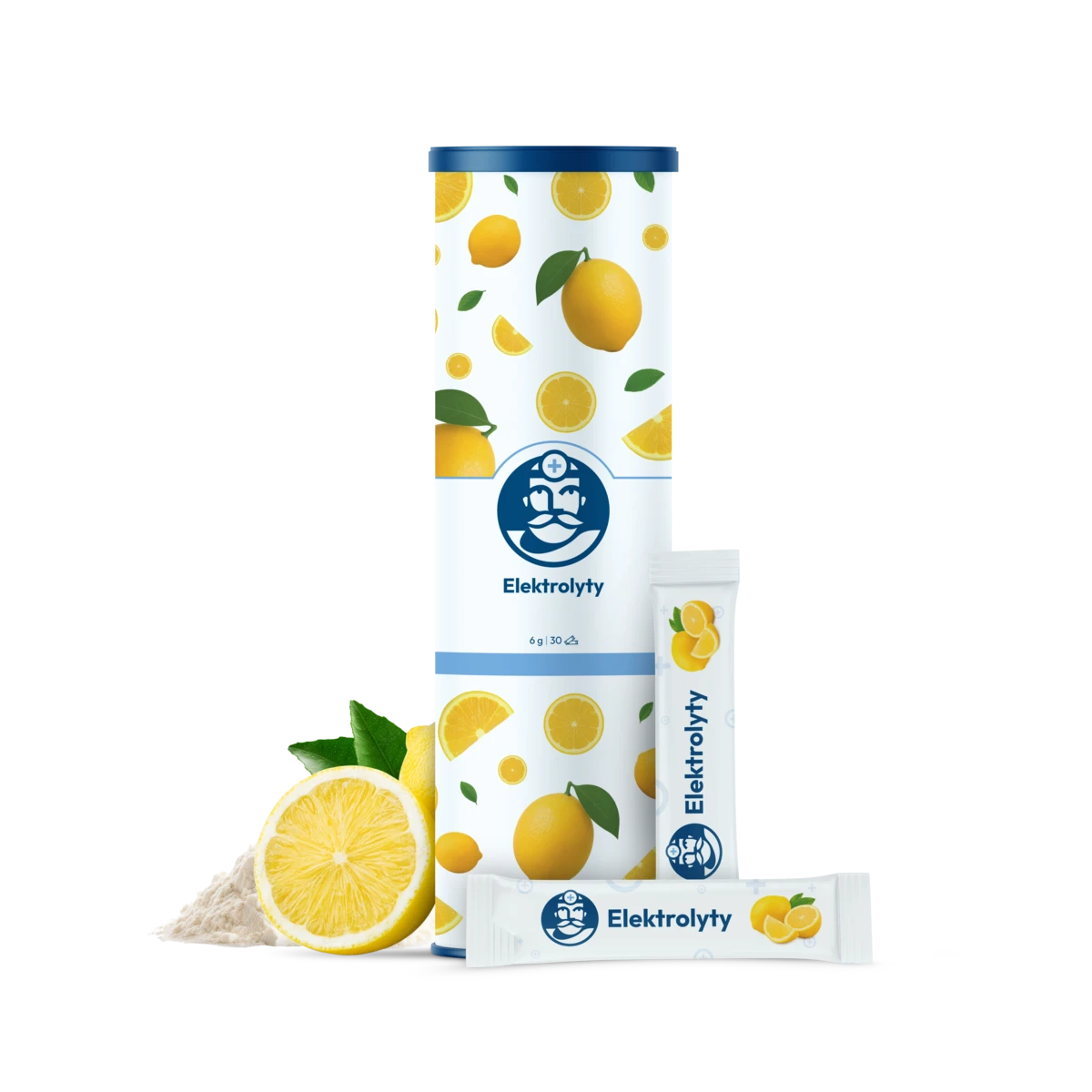

Electrolytes Lemon
Nutritional value
| Active ingredient | In daily dose | % Ref |
|---|---|---|
| Potassium (potassium citrate) | 1000 mg | 50.00% |
| Magnesium (magnesium citrate) | 120 mg | 32.00% |
| Calcium (calcium citrate) | 75 mg | 9.38% |
| Chloride (sodium chloride) | 60 mg | 7.50% |
| Sodium (sodium chloride) | 40 mg | - |
| Trace element premix: | 200 mg | - |
| - of which iron | 14 mg | 100.00% |
| - of which zinc | 10 mg | 100.00% |
| - of which boron | 5.8 mg | - |
| - of which fluoride | 3.5 mg | 100.00% |
| - of which manganese | 2 mg | 100.00% |
| - of which copper | 1 mg | 100.00% |
| - of which iodine | 150 mcg | 100.00% |
| - of which selenium | 55 mcg | 100.00% |
| - of which molybdenum | 50 mcg | 100.00% |
| - of which chromium | 40 mcg | 100.00% |
Ingredients: potassium citrate, magnesium citrate, calcium citrate, sodium chloride, trace element premix, acidity regulator: citric acid, flavor enhancer: natural lemon powder, malic acid, sweetener: steviol glycosides, natural color: turmeric.

Description
Product Overview:Discover the revitalizing power of Electrolytes - Lemon, a carefully formulated dietary supplement that combines essential minerals with a refreshing lemon flavor. This product is designed to support optimal hydration and electrolyte balance in your body, contributing to your overall well-being and vitality.
Key Benefits:
1. Hydration Support: Electrolytes are key to maintaining proper hydration. This supplement helps restore lost minerals after physical activity or during hot days, ensuring your body stays hydrated and full of energy.
2. Electrolyte Balance: Contains important minerals like potassium, magnesium, and calcium, which are essential for proper muscle and nervous system function. They help maintain electrolyte balance, supporting healthy muscle function and reducing the risk of cramps.
3. Immune System Support: A premix of trace elements, including iron, zinc, and selenium, strengthens your immune system and protects the body from harmful environmental influences.
4. Cell Protection: Antioxidants contained in this supplement help protect cells from damage by free radicals, supporting healthy aging and overall well-being.
Scientific Precision Meets Natural Wisdom:
Each dose of *Electrolytes - Lemon* embodies the perfect harmony between scientific research and natural wisdom. With a precise combination of minerals and trace elements, this supplement ensures optimal absorption and efficacy for comprehensive health support.
Directions for Use:
For best results, adults are recommended to take one dose daily, preferably after physical activity or during the day to maintain optimal hydration. This procedure enhances the absorption of active ingredients and supports your daily routine.
Commitment to Quality:
In the production of *Electrolytes - Lemon*, extraordinary attention is given to every step of production. Our supplement is manufactured in state-of-the-art facilities and undergoes strict quality controls to ensure purity, efficacy, and safety. Our commitment to excellence ensures that you receive a product that is effective and trustworthy, reflecting the purity and healing power of nature.
Enhancing Your Journey to Health:
At the heart of *Electrolytes - Lemon* lies the promise of health. This supplement is more than just a product — it is a testament to the enriching synergy between traditional mineral knowledge and modern scientific advancements. Let this supplement guide you on a journey to increased vitality, optimal hydration, and overall well-being.
Boost your health with Electrolytes - Lemon.
Reviews
Ohodnoťte produkt










